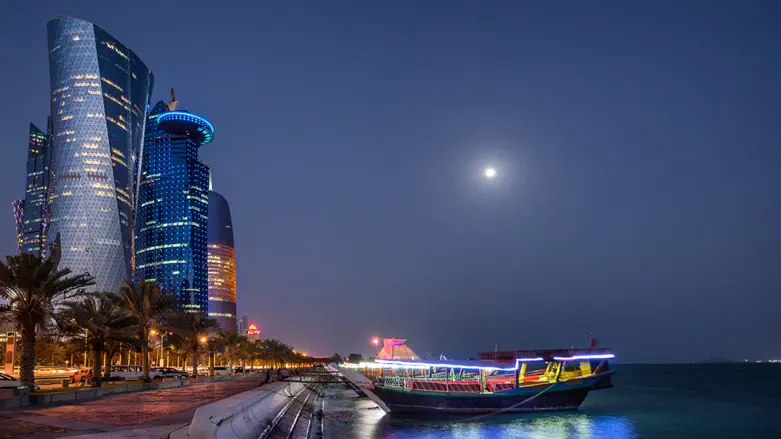
Qatar’s Foreign Minister, Sheikh Mohammed bin Abdulrahman Al Thani, has ruled out the prospect of his country normalizing relations with Israel.
Speaking to Axios during the visit of the emir of Qatar, Sheikh Tamim bin Hamad Al Thani, in Washington, Al Thani said that Qatar had previously maintained ties with Israel "when there was prospects for peace" with the Palestinian Arabs, but that his country "lost hope" after the 2008-2009 Gaza War.
He added that Qatar continues its "working relationship" to help the Palestinian people, but that it is difficult to envision joining the Abraham Accords "in the absence of a real commitment to a two-state solution."
Qatar has in recent years had an ongoing engagement with Israel over aid to Gaza. Qatar has provided hundreds of millions of dollars in recent years to pay for electricity in the Strip, build new roads and hospitals, help Hamas cover the salaries of its civil servants and provide monthly stipends to poor families.
Israel has approved the transfer of the Qatari money and has come under fire for doing so as Hamas continues to regularly fire rockets at Israeli towns in the south.
The Qatari envoy to Gaza, Mohammad Al-Emadi, acknowledged in an interview a few years ago that cooperation with Israel is needed in order to improve the situation in Gaza.
Following Operation Guardian of the Walls, it was reported that Israel plans to reevaluate the way in which the Qatari money enters Gaza in order to ensure that the funds go to the needy population of the Strip and not into the hands of Hamas.
Palestinian Arab sources later said that the United Nations would take on the responsibility of distributing the Qatari monetary aid to families in the Gaza Strip, replacing the previous method which involved suitcases full of cash entering the Strip through Israel.
In the interview with Axios, the Qatari Foreign Minister said Qatar is working hard to "bridge any gaps" in indirect nuclear talks between the US and the Islamic Republic.
Al Thani added that he's "very concerned" about the negotiations ending in failure, and that "we don't want to see a nuclear race in our region."

